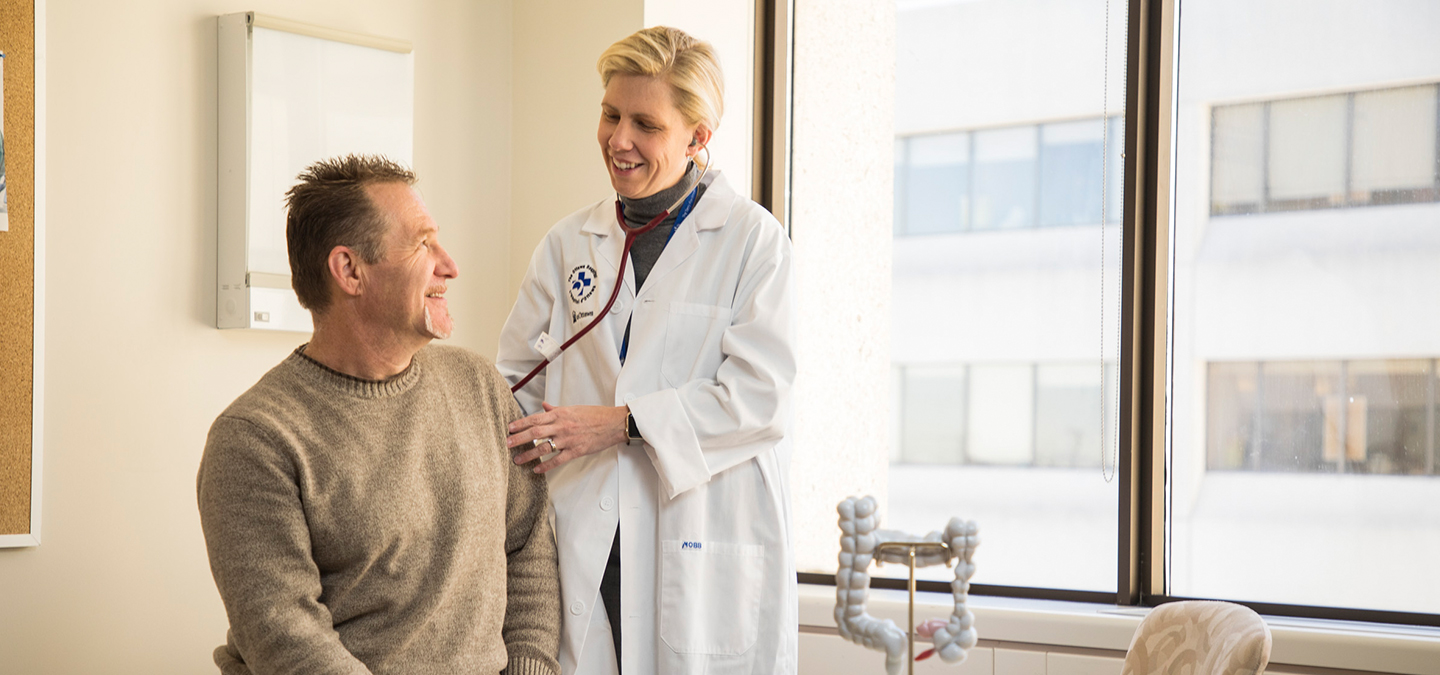Boosting Immunity to Battle COVID-19 in High-Risk People
"We think harnessing innate immunity could be one of our best weapons for fighting COVID-19 -- and could easily be adapted to tackle future pandemics."
"An effective vaccine against COVID-19 could take another year or more to develop, test and implement."
"In the meantime, there is an urgent need to protect people with cancer from severe COVID-19 infection, and we think this immune stimulator, IMM-101, may be able to do this."
"It's like sending your innate immune system to the gym for a while. So when it comes back to attack the next pathogen, it's much stronger and better."
"I imagine that if this trial was positive, this would be something you could have in your back pocket when the next pandemic came. You'd be able to say, 'We have something that works and can protect high-risk people'."
Dr.Rebecca Auer, director of cancer research, The Ottawa Hospital
 |
| Surgeon-scientist Dr. Rebecca Auer is leading a world-first clinical trial that she hopes will protect cancer patients from COVID-19 and other respiratory infections by boosting their immune systems during treatment.The Ottawa Hospital |
An immune-boosting bio-therapeutic called IMM-101 comprised of heat-destroyed bacteirum Mycobacterium obuense, which can be found in soil and water, is involved in the clinical trial. IMM-101, originally developed as an immunotherapy cancer treatment, has the demonstrated capability to activate the body's first line of defence, inclusive of NK (natural killer) cells responsible for guarding against viral and bacterial infections; safely used in other clinical trials with cancer patients.
The point of the trial is to determine whether boosting cancer patients' immune systems with IMM-101 will succeed in protecting them from contracting COVID-19, including other respiratory illnesses such as flu, whose presence can complicate and delay cancer treatment. Chemotherapy indiscriminately targets the fast-dividing cells characterized by cancer, or immune cells. Over 90,000 people in Ontario last year received radiation treatments or chemotherapy, their care complicated by COVID-19.
The clinical trial will enroll 1,500 patients at nine cancer centres country-wide, where study patients will be randomly assigned to either a group receiving regular care, or the one that IMM-101 has been added to. The IMM-101 group will receive three doses of IMM-101 over a 45-day period, following which they will be observed for COVID-19 or other respiratory-type illnesses.
In the past, immune boosters have been used successfully for years in veterinary medicine, in the prevention of respiratory virus transmission in cattle, horses and other animals. In Europe, clinical trials are now testing the BCG vaccine -- a tuberculosis vaccine containing a live, weakened strain of Mycobacterium bovis, to prime the immune system against COVID 19. BCG is responsible for training the immune system to fight off respiratory infections.
A similar process has been used for years in patients with bladder cancer, with huge success,
 |
| Dr. Rebecca Auer, surgical oncologist Photo courtesy The Ottawa Hospital. |
The mystery of why it is that some people become severely ill with COVID-19 even as others exhibit only mild symptoms, is believed by researchers to relate to an individual's innate immune system response. Innate immune cells recognize and attack a broad spectrum of infectious agents.
Live vaccines such as BCG cannot be administered to cancer patients, leading Dr.Auer and her research colleagues to search for an alternative, and that was IMM-101.
Though not a live vaccine, IMM-101 elicits a response when the innate immune system recognizes it as a foreign invader to which it reacts to protect the body.
Labels: Cancer, COVID-19, Immune System, Research, The Ottawa Hospital

0 Comments:
Post a Comment
<< Home